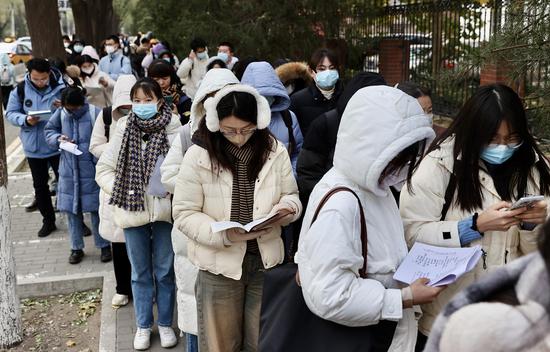Asia is expected to continue to account for the majority of global growth in 2024 and 2025, as it has in 2023, while global growth overall will remain moderate, according to the Economic Outlook released by the Organization for Economic Cooperation and Development on Wednesday.
Prepared by the OECD's economics department, the outlook provides a twice-yearly comprehensive analysis of global economic trends and prospects for the next two years, encompassing output, employment, government spending, prices and international influences.
The OECD stated in the report that global trade growth has been unexpectedly weak during the past year and is currently moderating due to the persistent impact of monetary policy tightening and lower business and consumer confidence.
It projects global GDP growth of 2.9 percent in 2023, followed by a mild slowdown to 2.7 percent in 2024 and a slight improvement to 3 percent in 2025.
Among G20 economies, China is projected to grow at a rate of 5.2 percent this year, followed by a decrease to 4.7 percent in 2024 and to 4.2 percent in 2025.
India has the highest growth prediction, with 6.1 percent forecast in 2024 and 6.5 percent in 2025.
The area comprising European nations that use the euro for currency is projected to have GDP growth of 0.6 percent in 2023, with subsequent increases to 0.9 percent in 2024 and 1.5 percent in 2025.
France, the United Kingdom, Italy and Germany are all projected to have low growth rates during 2024 of less than 1 percent, with Germany expected to be the lowest at 0.6 percent. The four economies each have the same growth forecast for 2025 of 1.2 percent.
In the US, GDP growth is expected to be 2.4 percent in 2023, slowing to 1.5 percent in 2024, and then showing a slight improvement to 1.7 percent in 2025.
The OECD said countries' monetary policies should remain restrictive until there are clear signs that inflationary pressures have reduced.
It said emerging market economies may have room for rate reductions, but the pace at which these can be implemented will be constrained by worldwide financial conditions.
"The global economy continues to confront the challenges of both low growth and elevated inflation, with a mild slowdown next year, mainly as a result of the necessary monetary policy tightening over the past two years. Inflation has declined from last year's peaks. We expect that inflation will be back at central bank targets by 2025 in most economies," OECD Secretary-General Mathias Cormann said. "Over the longer term, our projections show a significant rise in government debt, in part as a result of a further slowdown in growth.
"Stronger efforts are needed to rebuild fiscal space, also by boosting growth. To secure stronger growth, we need to boost competition, investment, and skills and improve multilateral cooperation to tackle common challenges, like reinvigorating global trade flows and delivering transformative action on climate change."
The OECD said greater emphasis should be placed on keeping markets open to facilitate the digital and green transformations, and that fiscal policy ought to address long-term spending challenges.
"Governments really need to start confronting the mounting challenges that public finances face, particularly from ageing populations and climate change," said Clare Lombardelli, the OECD's chief economist.
"Governments need to spend smarter, and policy makers need to contain current and future fiscal pressures while preserving investment and rebuilding buffers to respond to future shocks."


















































 京公网安备 11010202009201号
京公网安备 11010202009201号